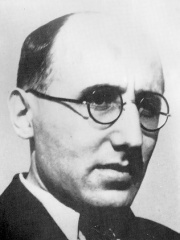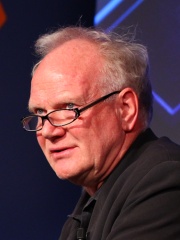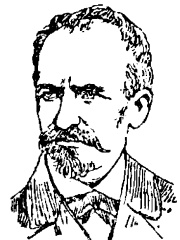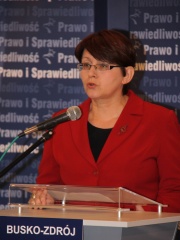



The Most Famous
SOCIOLOGISTS from Poland
This page contains a list of the greatest Polish Sociologists. The pantheon dataset contains 79 Sociologists, 5 of which were born in Poland. This makes Poland the birth place of the 5th most number of Sociologists behind France, and United Kingdom.
Top 5
The following people are considered by Pantheon to be the most legendary Polish Sociologists of all time. This list of famous Polish Sociologists is sorted by HPI (Historical Popularity Index), a metric that aggregates information on a biography's online popularity.

1. Norbert Elias (1897 - 1990)
With an HPI of 72.31, Norbert Elias is the most famous Polish Sociologist. His biography has been translated into 43 different languages on wikipedia.
Norbert Elias (German: [ˈnɔʁbɛʁt eˈliːas]; 22 June 1897 – 1 August 1990) was a German sociologist who later became a British citizen. He is especially famous for his theory of civilizing/decivilizing processes.

2. Ulrich Beck (1944 - 2015)
With an HPI of 71.87, Ulrich Beck is the 2nd most famous Polish Sociologist. His biography has been translated into 48 different languages.
Ulrich Beck (German: [bɛk]; 15 May 1944 – 1 January 2015) was a German sociologist, and one of the most cited social scientists in the world during his lifetime. His work focused on questions of uncontrollability, ignorance and uncertainty in the modern age, and he coined the terms "risk society" and "second modernity" or "reflexive modernization". He also tried to overturn national perspectives that predominated in sociological investigations with a cosmopolitanism that acknowledges the interconnectedness of the modern world. He was a professor at the University of Munich and also held appointments at the Fondation Maison des Sciences de l’Homme (FMSH) in Paris, and at the London School of Economics.

3. Ludwig Gumplowicz (1838 - 1909)
With an HPI of 64.41, Ludwig Gumplowicz is the 3rd most famous Polish Sociologist. His biography has been translated into 25 different languages.
Ludwig Gumplowicz (9 March 1838 – 19 August 1909) was a Polish sociologist, jurist, historian, and political scientist, who taught constitutional and administrative law at the University of Graz. Gumplowicz was the son of a Jewish carpet and porcelain manufacturer, Abraham Gumplowicz. Gumplowicz is considered to be one of the founding fathers of sociology across German-speaking countries. While living under the Austro-Hungarian monarchy, he witnessed many violent anti-Semitic conflicts between ethnic groups, which influenced his sociological theories of social conflict and explaining social phenomenas later on in life. His contributions to the fields of social science, political science, and jurisprudence allowed these fields to expand under the lens of Gumplowicz's applications of sociological generalizations. In all three areas, he was a straightforward and vivacious writer who excelled in controversy. He was well known for his skepticism of the permanence of social progress and his belief that the state emerges from inevitable confrontation rather than unity or divine inspiration.

4. Shmuel Eisenstadt (1923 - 2010)
With an HPI of 60.69, Shmuel Eisenstadt is the 4th most famous Polish Sociologist. His biography has been translated into 17 different languages.
Shmuel Noah Eisenstadt (Hebrew: שמואל נח אייזנשטדט; 10 September 1923 – 2 September 2010) was an Israeli sociologist and writer. In 1959 he was appointed to a teaching post in the sociology department of the Hebrew University in Jerusalem. From 1990 until his death in September 2010 he was professor emeritus. He held countless guest professorships, at the University of Chicago, Harvard University, the University of Zurich, the University of Vienna, the University of Bern, Stanford and the University of Heidelberg, among others. Eisenstadt received a number of prizes, including the Balzan Prize and the Max-Planck research prize. He was also the 2006 winner of the Holberg International Memorial Prize. He was a member of many academies, including the American Academy of Arts and Sciences and the Advisory Editors Council of the Social Evolution & History Journal. His daughter Irit Meir was a noted scholar of Israeli sign language. In the field of sociology he became known as a "sociologist of youth" (after a term in From Generation to Generation, a work closely related to the ideas of Talcott Parsons). However: Eisenstadt's research contributed considerably to the understanding that the modern trend of a eurocentric interpretation of the cultural program developed in the west is a natural development model seen in all societies ... the European model is not the only one: it was merely the earliest. It started the trend. But social reactions, whether in the USA, Canada, Japan or in Southeast Asia took place with completely different cultural reagents. (Frankfurter Rundschau, March 22, 2000)

5. Grażyna Gęsicka (1951 - 2010)
With an HPI of 50.75, Grażyna Gęsicka is the 5th most famous Polish Sociologist. Her biography has been translated into 17 different languages.
Grażyna Gęsicka (13 December 1951 – 10 April 2010) was a Polish sociologist and politician and a former (2006–2007) minister of Regional Development in Marcinkiewicz's and Jarosław Kaczyński's government. In 2007 she was elected to the Sejm. From 2009 until her death she was the leader of Law and Justice parliamentary caucus. She was born in Warsaw. In 1974, she graduated from Warsaw University's Institute of Sociology and in 1985 received her doctorate. She was a former member of the Polish Sociological Society and the Association Internationale des Sociologues de Langue Francaise. She was a speaker of English and French. She was listed on the flight manifest of the Tupolev Tu-154 of the 36th Special Aviation Regiment carrying the President of Poland Lech Kaczyński which crashed near Smolensk-North airport near Pechersk near Smolensk, Russia, on 10 April 2010, killing all aboard. On 25 April, she was buried in the Smolensk Cemetery Headquarters Military Cemetery in Warsaw. On 16 April 2010, Gęsicka was posthumously awarded the Commander's Cross of the Order of Polonia Restituta.
People
Pantheon has 5 people classified as Polish sociologists born between 1838 and 1951. Of these 5, none of them are still alive today. The most famous deceased Polish sociologists include Norbert Elias, Ulrich Beck, and Ludwig Gumplowicz.
Deceased Polish Sociologists
Go to all RankingsNorbert Elias
1897 - 1990
HPI: 72.31
Ulrich Beck
1944 - 2015
HPI: 71.87
Ludwig Gumplowicz
1838 - 1909
HPI: 64.41
Shmuel Eisenstadt
1923 - 2010
HPI: 60.69
Grażyna Gęsicka
1951 - 2010
HPI: 50.75
Overlapping Lives
Which Sociologists were alive at the same time? This visualization shows the lifespans of the 5 most globally memorable Sociologists since 1700.

